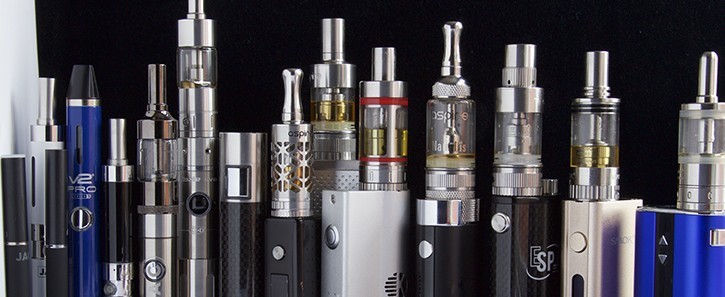
Judicial Watch Sues over Records on Obama E-Cig Regs

In 2016, FDA Ruled E-Cigarettes ‘Tobacco Products,’ Restricting Their Sale and Distribution despite Conclusive Studies Showing Their Substantial Success in Ending Tobacco Addiction
(Washington, DC) — Judicial Watch announced today that it filed a Freedom of Information (FOIA) lawsuit against the Department of Health and Human Services (HHS) seeking records from the Food and Drug Administration (FDA), Centers for Disease Control and Prevention (CDC) and the Office of the Surgeon General (OSG) regarding the cancer-causing effects of electronic cigarettes as compared to traditional cigarettes. Judicial Watch brought the action in the United States District Court for the District of Columbia (Judicial Watch vs. U.S. Department of Health and Human Services et al. (No. 1:17-cv-00831)).
The lawsuit was filed after the agencies failed to respond to FOIA requests sent in March 2017 seeking:
All internal [FDA, CDC, or OSG] emails discussing the relative carcinogenicity of inhalation from Electronic Nicotine Delivery Systems compared to inhalation from traditional combustible cigarettes.
In May 2016, the Federal Drug Administration issued a “Final Rule” deeming e-cigarettes “tobacco products” and restricting their sale and distribution in the United States. While saying that it was “taking this action to reduce the death and disease from tobacco products,” the FDA admitted: “We do not have sufficient data to determine what effects e-cigarettes have on public health at the population level. We also noted that some individuals report using e-cigarettes to successfully quit smoking….”
The FDA issued its restrictions despite scientific studies strongly indicating that the use of e-cigarettes in Europe had substantially reduced tobacco cigarette addiction. An April 2016 study by the London’s Royal College of Physicians found e-cigarettes to be 95 percent less harmful than cigarettes. The study concluded, “The emergence and consumer success of e-cigarettes, as a partial or complete substitute for smoking, reflects significant potential to reduce the harm caused by smoking to society by encouraging as many smokers as possible to use e-cigarettes, or indeed other non-tobacco nicotine products, rather than tobacco cigarettes.”
A November 2016 study conducted by the US-government-funded National Center for Biotechnology Information in 28 European countries found similar positive results for e-cigarettes in substantially reducing tobacco addiction. According to the study, “More than one-third of current e-cigarette users polled reported smoking cessation and reduction.” The study surveyed a total of 27,460 European Union citizens.
An extensive June 2016 article in Observer.com raised serious questions as to the role of the major pharmaceutical companies, and even the tobacco industry, in influencing the FDA’s promulgation of its May 2016 “Final Rule” regulating e-cigarettes. According to the article:
Drug companies favoring the FDA rules—usually big backers of Democrats—have huge sums invested in prescription smoking-cessation drugs, covered in many cases under the Democrat-passed Affordable Care Act, which they helped shape. They now face stiff competition from readily available e-cigarettes. Similarly, tobacco companies, left flat-footed by the growth of the upstart vaping market, also support the FDA rules as they look to shore up market positions in both tobacco and e-cigarettes.
“The emails sought by Judicial Watch could shed light on how the Obama FDA arrived at the decision to strictly regulate e-cigarettes, despite its own admission that it had done inadequate research – and, in fact, that the devices helped smokers quit tobacco,” said Judicial Watch President Tom Fitton. “The American people deserve to know if a corrupt government power grab put the public health at risk.”
###
















